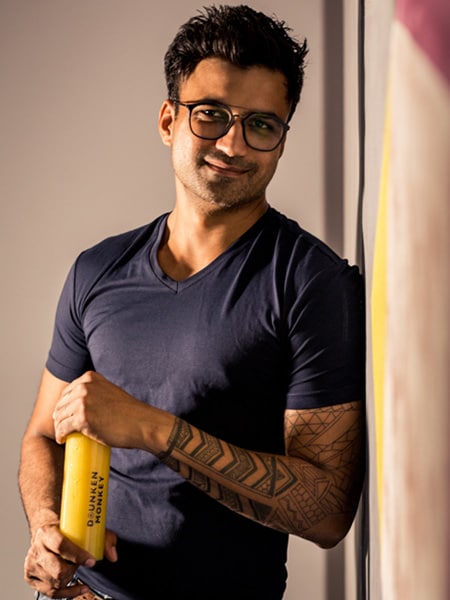
Drunken Monkey's on a high
How Samrat Reddy's smoothie brand, Drunken Monkey, is carving a niche in a country dominated by tea and coffee chains—and what challenges lie ahead
 Samrat Reddy, Founder, Drunken Monkey
Samrat Reddy, Founder, Drunken Monkey
Samrat Reddy has lived with the expression ‘Are you drunk?’—after all, the 34-year-old first-generation entrepreneur has heard people utter the three magic words umpteen times, whenever he has done something seemingly absurd to get a ‘high.’
A software engineer from Chennai, Reddy, who is the founder of smoothie chain Drunken Monkey, worked in Australia for a year in 2007 at a handsome salary of $50,000, got promoted within nine months and received an offer to stay back Down Under for another four years. Reddy not only declined the offer, but quit to pursue an MBA from Scotland.
Reddy’s professor parents, as expected, were shocked. “Are you drunk?” came the verbal volley. Reddy’s employer too resonated the same emotion. “Why would you do so?” was the obvious question. Reddy said the job didn’t give him “a kick”; and returned to India in 2009 after his MBA.
Now, the engineer decided to turn entrepreneur. For his parents, it was a déjà vu ‘Are you drunk?’ moment.
“I want to do business. I don’t know what but it has to be business,” was Reddy’s defense. The challenge of exploring unchartered waters, where the chances of failing as well as possibilities of striking gold were high, seemed mentally stimulating. So he got into the business of 3D innovation by starting a studio in Chennai, ran it for five years with his friends, and then began his hunt for new high. After a year of brainstorming, Reddy plunged into the business of smoothies by rolling out Drunken Monkey in 2016.
“Who sells smoothies? In fact, who knows smoothies?” were some of the jibes he got.















